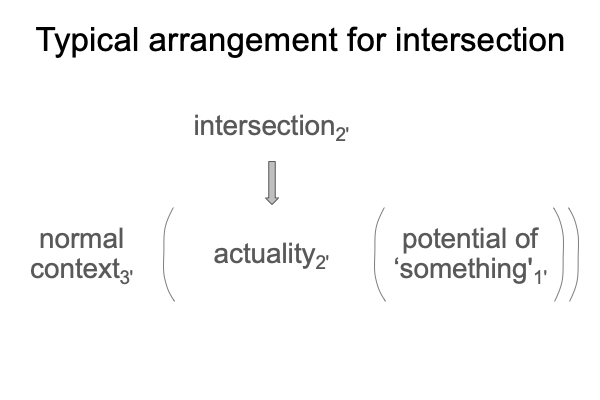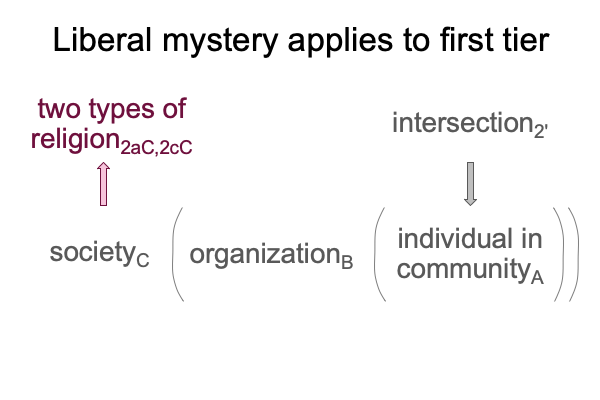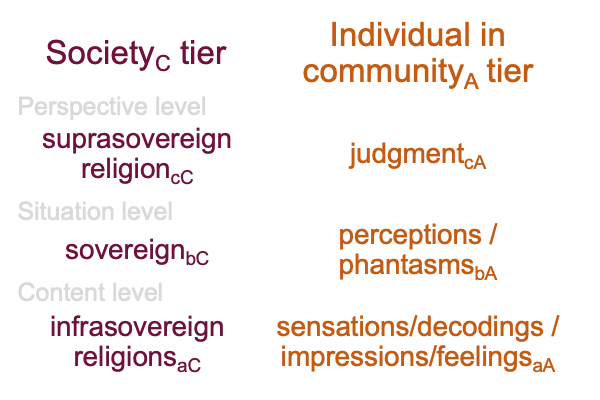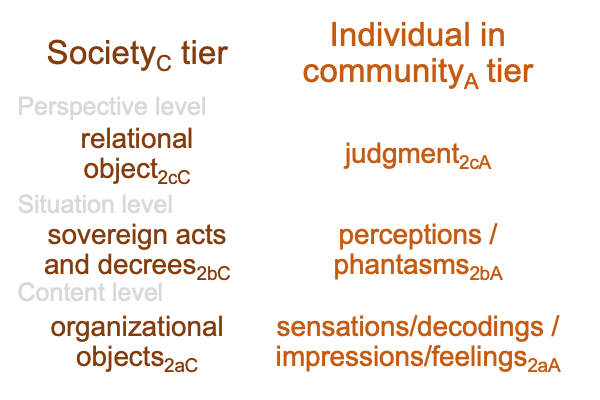0015 Usually, an intersection serves as an actuality2 in a category-based nested form.
Here is a picture.

0016 But, according to the chapter on presence in the e-book, How To Define The Word “Religion”, the individual in communityA belongs to firstness in the following undifferentiated nested form. Each element in the figure below designates an interscope (a nested form composed of nested forms).

Yes, the mystery of liberalism2′ applies to the tier related to firstnessA. It2′ resonates with the actualities contained in the interscope for the individual in communityA. The comparison will be further developed, later.
0017 Since the liberal tradition is a civic religion, liberalism also belongs to the societyC tier.
The societyC tier contains two types of religion, ones above the sovereignbC (suprasovereigncC) and those below the sovereignbC (infrasovereignaC).
The three levels of the societyC tier are (from top to bottom) suprasovereigncC, sovereignbC and infrasovereignaC.
In comparison, for the individual in communityA tier, the three levels are judgmentcA, perceptions and phantasmsbA, and sensations, decodings, impressions and feelingsaA.
“Decodings” convert what someone speaks into a meaning, presence and message underlying the statement.

0018 I offer this comparison because liberalism is a religion on the societyC tier. Yet, a core mystery of liberalismcoincides with the virtual nested form, in the realm of actuality, for the individual in communityA tier.
So, allow me to juxtapose the virtual nested forms in the realm of actuality, for both the societyC and individual in communityA tiers.

0019 So, the question arises, “Is liberalism a suprasovereign or an infrasovereign religion?”
This answer is both. Liberalism consists of many different institutions3aC, striving to remake humanity1aC, according to diverse organizational objectives2cC. The variety of causes is enormous, from teaching people proper manners to ending human trafficking. These causes appeal to the commonsense2V and the awareness of vulnerability2H characterizing individuals2′.
Only fools have no commonsense2V. Only sociopaths have no awareness of vulnerability2H.
So all liberal institutions, appealing to anyone who is not a fool or a sociopath, share a relational object2cC, the mysterious intersection of Locke’s and Hobbes’s nested forms.
Furthermore, this relational object2cC, is an actuality that associates to the virtual nested form in the realm of actuality for the individual in communityA tier.

